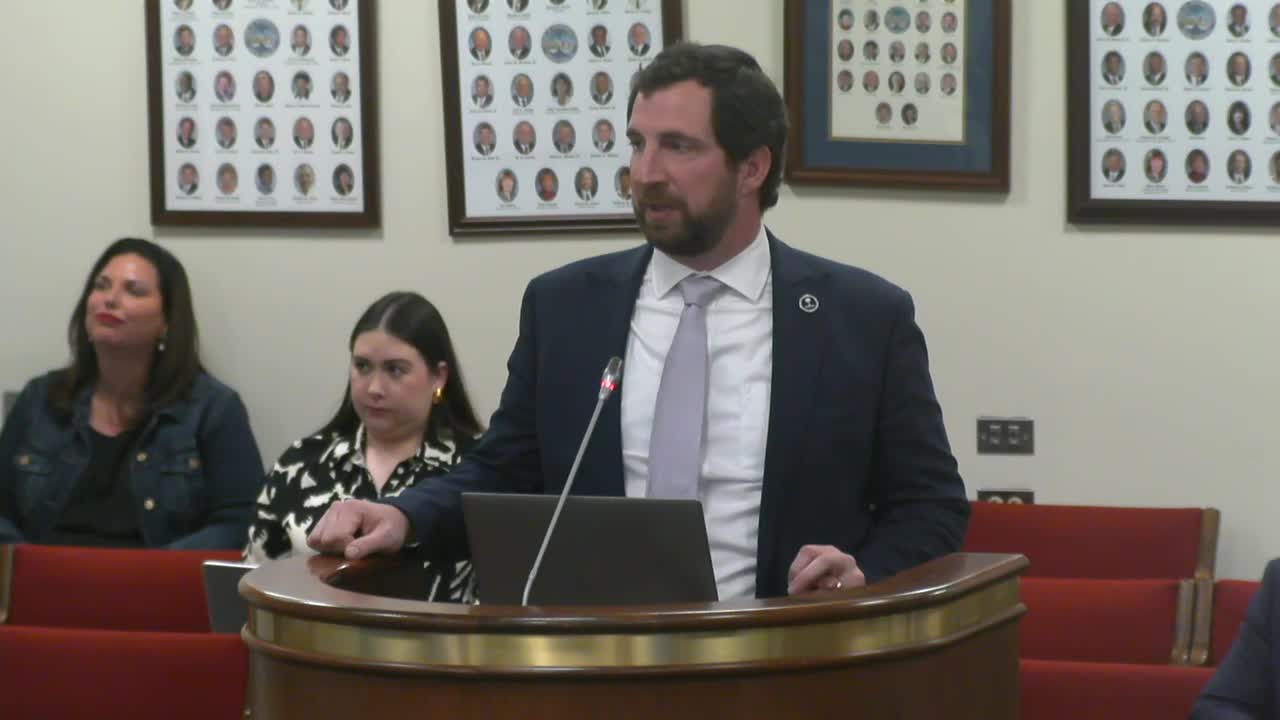State Department of Education outlines literacy, math and cell‑phone priorities and a major budget request
Get AI-powered insights, summaries, and transcripts
Subscribe
Summary
Philip Cease for the State Department of Education described state literacy and math initiatives, a new cell‑phone model policy the department will push to districts, and a budget request that includes increases to starting teacher pay and funds for instructional materials and school safety.
Philip Cease, director of governmental affairs for the South Carolina Department of Education, told the House Education and Public Works Committee that the department has organized a multi‑year strategy to improve foundational skills and expand supports for schools.
Cease described the department’s current priorities as a four‑part strategy: expand evidence‑based instruction (including the Science of Reading and the Palmetto Math Project), grow career pathways and work‑based learning, support behavioral and mental‑health initiatives, and launch statewide community engagement programs.
On reading, Cease said the legislature previously funded LETRS training and that the department expects all K–3 teachers to complete LETRS training "by the end" of the multi‑year rollout; he described nearly $40,000,000 in earlier funding for high‑quality professional learning. "By the end of ... school year, every K through 3 teacher will have been through LETRS," Cease said. The department also described expansion of Palmetto Math Project pilots and a request for additional funding for math instructional materials.
Cease described the cell‑phone proviso that the State Board of Education must adopt and local districts must implement to receive state classroom funding: the model policy defines "access" during the school day (bell to bell) and permits districts to decide consequences and local exceptions, including for IEP or medical needs. The department has branded the initiative "Free to Focus." "Consequences are required in the model policy, but they are not spelled out. That is a local district decision and exceptions are permitted," Cease said.
On budget priorities, Cease listed a package the department planned to present to the legislature: a request of $200,000,000 to raise starting teacher salary to $50,000 (with $3,000 per pay scale referenced), $20,000,000 recurring and $95,000,000 non‑recurring for high‑quality instructional materials (math and ELA), $13,000,000 for a CTE Rural Renaissance, expanded summer reading camp funding and a $100,000,000 recurring ask to create a rural infrastructure bank for school facility upgrades and safety measures. He also said the department would request funds for summer reading camps and for fully funding the Education Scholarship Tax Fund as written.
Committee members asked for implementation details and for evidence supporting the initiatives. Cease noted that Read to Succeed 2 increases retention thresholds and that the department estimated 16,238 third‑grade students would have been eligible for retention under the newer standard; he described summer camps and other interventions as options for students to demonstrate progress and be promoted. Representative Grant asked whether the cell‑phone proviso had a sunset; Cease said it is a proviso that will return to the legislature and the department’s position is to let it run a full year to collect data before statutory changes. Representative Hoff and others raised implementation and communication concerns; Cease and other committee members said districts had submitted plans and that some teachers reported positive classroom effects after implementation.
Cease closed by urging committee members to review department materials and said the department will provide slides and web resources. "There is a lot on this webpage, about LETRS ... talking to administrators and teachers and the success they've seen," he said, referring members to ed.sc.gov/literacy for further materials.
